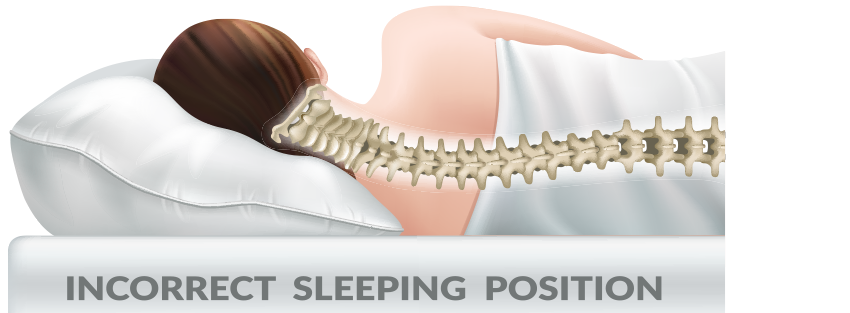Recent Posts
- Home
- Blog | Vancouver Mattress Store
- Can memory foam mattress cause back pain?
Can memory foam mattress cause back pain?
Posted by on

When it comes to physical and mental health, few things can benefit you as much as a good night's sleep. You want to ensure that you're comfortable the whole night through, but not all mattresses give you this feeling. As such, many consumers turn to new types of mattresses to help alleviate the tossing and turning they offer experience.
One type of mattress that has grown in popularity over the years is memory foam. This is a tremendous option for many, but for others, there is hesitation and many questions to be answered. Because physical health is important, many consumers wonder the same thing: do memory foam mattresses cause back pain like many of the other mattresses on the market?
Before you pick up a memory foam mattress, you should be sure to weigh the pros and cons. There are plenty of studies regarding the use of memory foam mattresses, but many offer mixed results based on the individual use. This is why research should be done on a per-person basis so you know what you're purchasing. Here are some of the things you should know about these types of mattresses.
Can a Memory Foam Mattress Cause Back Pain?
Face it, back pain isn't just about age anymore. In many situations, back pain is caused by the way we sleep and how our spine aligns while we sleep. Not all mattresses support the body's natural alignment causing serious problems, including ongoing back pain. In order to help remedy this issue, certain mattresses have come onto the market with a focus on comfort and alignment.
However, not all memory foam mattresses are perfect for everyone. While the memory foam mattress does help provide support for the lumbar and aligns the spine without any of the gaps of traditional mattresses, some individuals may have different results.
Some sleepers can still experience back pain with a memory foam mattress if their body contours to the mattress in a manner where the spine is not properly aligned. In many cases, though, a memory foam mattress may be recommended for back pain.
Are There Any Disadvantages to Having a Memory Foam Mattress?
Again, the disadvantages are typically dependent on the individual and their experience. For some, it can cause the hips to sink too low into the mattress. For others, it can more uncomfortable in areas where their body is heavier.
When discussing disadvantages of a memory foam mattress, some new owners experience something called offgassing--the term often used when the chemicals of the material release into the area. This is a weird smell that comes from the memory foam mattress when it is new. However, it is something that can be remedied by waiting some time before putting sheets on the mattress and letting it air out.
Another potential problem individuals may experience is the retention of body heat by the memory foam mattress. This is typically problematic in warmer weather as it could make it uncomfortable for the user to sleep. Once again, this is not an experience everyone has and is often dependent on the user.

What are the Advantages of Using a Memory Foam Mattress?
While heat retention is a negative to some, it may be a positive to others. Heat retention can actually help to soften the memory foam and makes it easy to mold to your body. When you get up and remove the body heat, the memory foams elasticity comes into play and puts the foam to its original position. Because the mattress molds to your body, it helps support your body in a way that works for you.
Memory foam mattresses also offer the benefit of pain relief for many users. Certain pressure spots are damaged with the use of regular mattresses. This is worse for individuals who have arthritis, muscle and joint pains, and chronic back pain. Memory foam is typically more forgiving in these problem areas, providing necessary cushioning for a better night's sleep.
One of the often overlooked advantages of memory foam mattresses? It's better than regular mattresses for individuals with allergies. Most memory foam mattresses not only act as a allergen barrier, but they are often made using hypoallergenic materials. This means less problems for your allergies and better sleep.
How Do I Know I'm Buying the Right Memory Foam Mattress?
When you're purchasing your memory foam mattress, it's important to ensure you're doing your research. This means considering plenty of factors before making the purchase so you can have the maximum comfort from your choice. Here are some of the things you should consider:
- The size of your bed frame - Make sure that the size of your memory foam mattress will fit your bed frame. Any inconsistencies and the memory foam mattress may not serve its purpose. A perfect match is the best choice for comfort.
- The type of foam you want - Not all memory foam mattresses are the same and they are often made out of different types of materials. This can include traditional, plant-based, and gel foam. You should research each to determine the best preference for you.
- The position of your sleep - Some memory foam mattress types may be better for side sleepers while others are perfect for back sleepers. You should try out multiple types of memory foams to get a better understanding of which is best for you.
How Do Traditional, Plant-Based, and Gel Foams Differ?
Traditional foams are the staple for many users. They've been around for quite some time and are consistently good at helping alleviate the problem areas for many users, including back pain.
Plant-based memory foams give the user a natural feel and are more springy. They are quick to return their original shape than traditional memory foams. Many environmental-friendly users are happier with the use of more natural materials.
For those who have a harder time sleeping due to heat retention, a gel foam may be the best option because it offers a cooler material and sleep. These types of mattresses are a combination of traditional and gel memory foam and many prefer to have this added aspect to their sleep.
What Can I Do If I Have Back Pain?
Whether you experienced back pain because of physical activity or you're simply sleeping incorrectly, getting the problem fixed is important. In many situations, those experiencing significant back pain are on mattresses that are too old or do not conform to them in a way which is comfortable.
This makes switching mattresses a necessary step. However, not all mattresses will offer the support you need and it's important to try different types of mattresses to determine which is best for you.
Memory foam mattresses are ever changing and there are more options now than ever before. They have proven more often than not to be beneficial when used by those who have chronic back pain.
Just remember that whatever choice you make, spine alignment should be the utmost priority. It can do wonders to alleviate the pressure at certain points on your body and the right mattress can provide your pain some much needed relief.

 Loading... Please wait...
Loading... Please wait...


